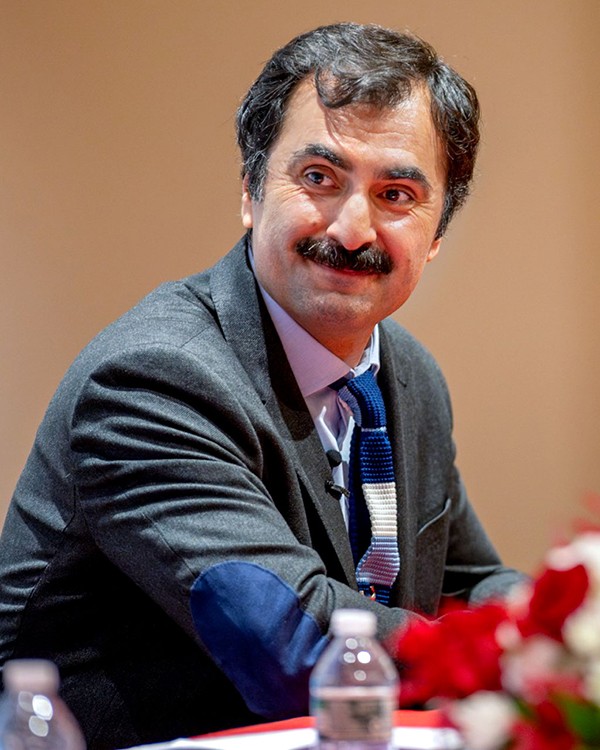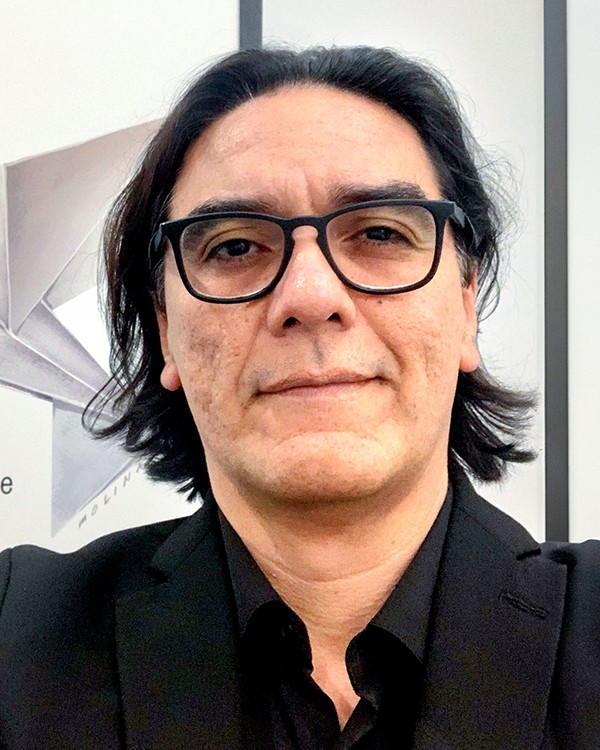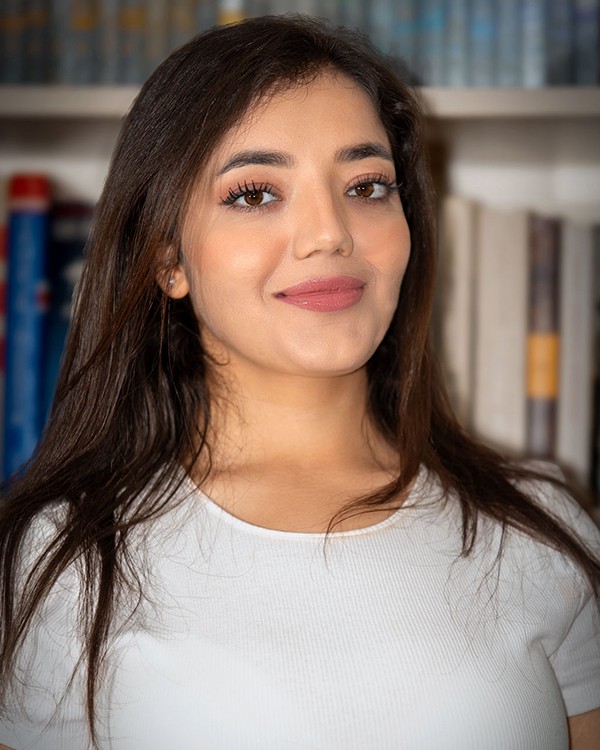Cornell helps displaced scholars rebuild lives, careers
By Sheri Englund
From a sociologist accused of treason to a political cartoonist to an Afghan artist, displaced scholars fleeing conflicts in their home countries have found refuge at Cornell, which has hosted more Institute of International Education scholar and artist fellows than any other university in the world.
Cornell is among more than 500 universities worldwide partnering with IIE to offer one- to two-year placements designed to protect displaced scholars’ lives, voices and ideas as they flee conflicts and violence.
Global Cornell leads a campus and community partnership to support visiting international scholars and artists and give them a safe refuge and career opportunities as they pursue a more permanent situation for themselves and their families. Cornell received IIE’s Centennial Medal last fall for its work hosting international scholars under threat.
“In crisis after crisis, this university has opened its doors to scholars, their families, through all the challenges, and made them feel that they belong,” said IIE’s CEO Allan Goodman when he announced the award on Oct. 30.
Turkish sociologist Azat Gündoğan and his wife were forced to flee their homeland in January 2016 after President Recep Tayyip Erdoğan accused them – and more than 2,000 fellow academics – of treason. Gündoğan became a visiting scholar at Cornell’s Institute for European Studies, part of the Mario Einaudi Center for International Studies.
“The IIE-SRF fellowship was a lifeline,” Gündoğan said. “Cornell wasn’t just a stopover. It was a catapult that launched me toward future possibilities.”
Today Gündoğan is an associate teaching professor in Florida State’s University Honors Program.
“It’s been six years since we moved to Tallahassee. It’s a good feeling to eventually form our own community of scholars and neighbors,” he said, “and my connections with Cornell are still strong.”
Nicaraguan political cartoonist Pedro X. Molina continues his daily work of skewering Nicaragua’s dictatorship from Ithaca. Facing a crackdown on media critics, he and his family escaped to New York in December 2018.
After two years at Ithaca College, Molina became a visiting critic at Einaudi’s Latin American and Caribbean Studies Program. He says his experience at Cornell fueled his creativity, amplified his message for a global audience and helped him build a local network.
In 2023 Molina was honored with the Václav Havel International Prize for Creative Dissent recognizing top artists who use their work to speak out against oppression. He was 2024 finalist for the Herblock Prize for excellence in editorial cartooning.
“My work aims to underscore the fact that liberty is not a permanent state,” Molina said. “It is a delicate achievement to value and protect every day, because it is constantly under threat.”
Afghan artist and museum professional Sharifa “Elja” Sharifi fled her country in September 2021, a month after the Taliban seized control and set policies in place to deprive women of virtually all rights. Today Sharifi is completing her second year as a visiting scholar at the Herbert F. Johnson Museum of Art, with a research focus on Persian pieces in the museum’s renowned Asian art collection and several exhibitions under her belt.
“My colleagues helped me so much to regain my strength and get going,” Sharifi said.
She was recently accepted into Cornell’s doctoral program in the history of art, archaeology and visual studies. Sharifi feels a profound sense of duty and responsibility to the women of Afghanistan.
“Those of us who have left,” she said, “must become the voice of women who are living under the Taliban.”
Read the full series about Gündoğan, Molina and Sharifi on the Global Cornell website.
Sheri Englund is senior associate director of communication at Global Cornell.
Media Contact
Get Cornell news delivered right to your inbox.
Subscribe



